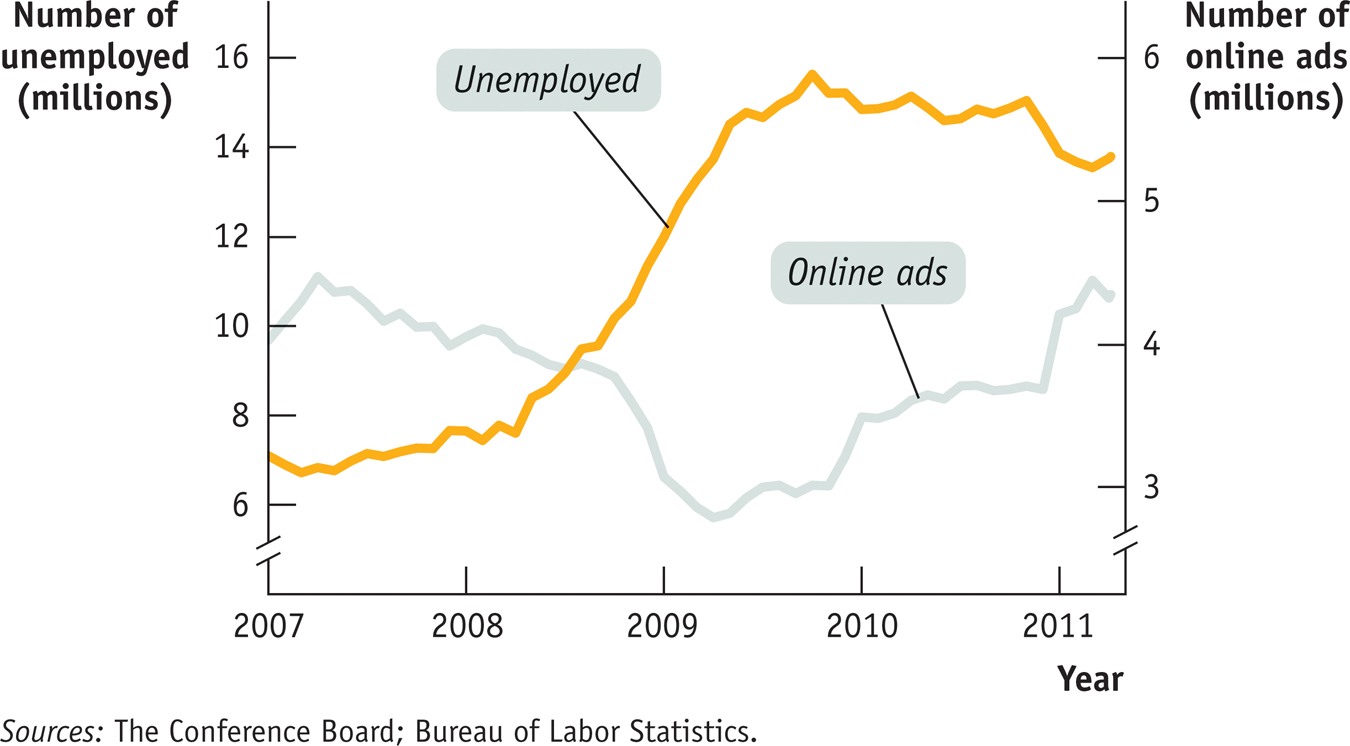A Monster Slump
The 1990s were famously an era of business hype, a decade when numerous online companies were created, then sold their stock at incredibly high prices, and, in the end, went bust. Some of the dotcoms, however, turned out to have workable business models and have endured. Among them is Monster.com, a job-

Monster Worldwide (the company’s current name) and its competitors sell services to both employers seeking workers and workers seeking jobs. The employers place job listings, to which workers can respond; in addition to responding to these listings, job-
The growing importance of online job listings was brought home in 2007 when The Conference Board, a business group that has long tracked the economy by producing an index of help-

In the late 1990s, when the U.S. economy was experiencing unusually low unemployment, some economists suggested that Monster Worldwide and other online job services might be partly responsible, by making it easier for workers to get new jobs without a prolonged intervening period of unemployment. The evidence for this effect is, however, inconclusive.
You might have thought that the 2007–
By late 2010, the economy seemed to be on the road to recovery, and so was Monster Worldwide, with one caveat: by 2010, online job listings, which were cutting-
Questions for Thought
Question
1.How is the existence of services such as Monster.com likely to affect frictional and structural unemployment?
Question
2.In light of our discussion of the determinants of the unemployment rate, how could improved matching of job-
Question
3.What does the fact that Monster Worldwide did badly during the 2008–